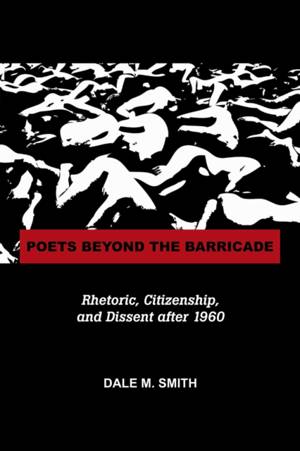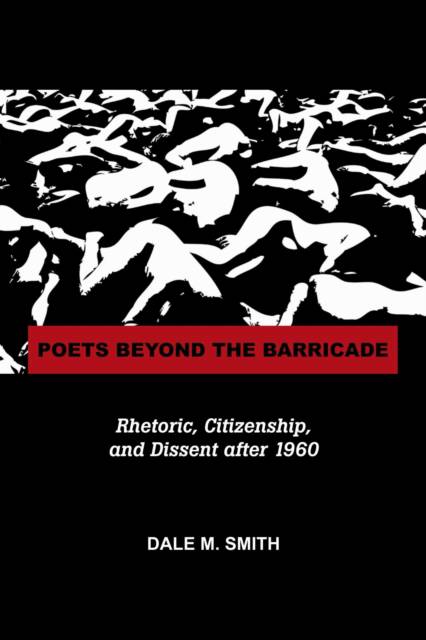
- Afhalen na 1 uur in een winkel met voorraad
- Gratis thuislevering in België vanaf € 30
- Ruim aanbod met 7 miljoen producten
- Afhalen na 1 uur in een winkel met voorraad
- Gratis thuislevering in België vanaf € 30
- Ruim aanbod met 7 miljoen producten
Zoeken
€ 32,45
+ 64 punten
Omschrijving
Since the cultural conflicts over the Vietnam War and civil rights protests, poets and poetry have consistently raised questions surrounding public address, social relations, friction between global policies and democratic institutions, and the interpretation of political events and ideas. In Poets Beyond the Barricade: Rhetoric, Citizenship, and Dissent after 1960, Dale Smith makes meaningful links among rhetoric, literature, and cultural studies, illustrating how poetry and discussions of it shaped public consciousness from the socially volatile era of the 1960s to the War on Terror of today. The book begins by inspecting the correspondence and poetry of Robert Duncan and Denise Levertov, which embodies competing perspectives on the role of writers in the Vietnam War and in the peace movement. The work addresses the rational-critical mode of public discourse initiated by Jürgen Habermas and the relevance of rhetorical studies to literary practice. Smith also analyses letters and poetry by Charles Olson that appeared in a New England newspaper in the 1960sand drew attention to city management conflicts, land-use issues, and architectural preservation. Public identity and U.S. social practice are explored in the 1970s and '80s poetry of Lorenzo Thomas and Edward Dorn, whose poems articulate tensions between private and public life. The book concludes by examining more recent attempts by poets to influence public reflection on crucial events that led to the wars in Iraq and Afghanistan. By using digital media, public performance, and civic encounters mediated by texts, these poetic initiatives play a critical role in the formation of cultural identity today.
Specificaties
Betrokkenen
- Auteur(s):
- Uitgeverij:
Inhoud
- Aantal bladzijden:
- 200
- Taal:
- Engels
- Reeks:
Eigenschappen
- Productcode (EAN):
- 9780817317492
- Verschijningsdatum:
- 5/01/2012
- Uitvoering:
- Hardcover
- Formaat:
- Genaaid
- Afmetingen:
- 155 mm x 229 mm
- Gewicht:
- 439 g

Alleen bij Standaard Boekhandel
+ 64 punten op je klantenkaart van Standaard Boekhandel
Beoordelingen
We publiceren alleen reviews die voldoen aan de voorwaarden voor reviews. Bekijk onze voorwaarden voor reviews.







